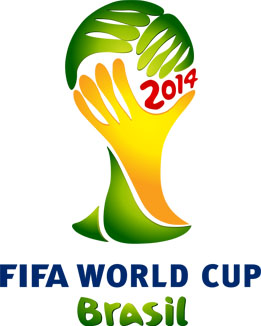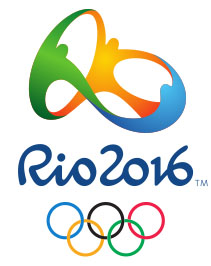 |
Tim Bunnell
|
TIM BUNNELL is the senior VP of production, programming, marketing and advertising sales at ESPN Int'l. In his capacity, he keeps a close eye on the network's Latin American operations. The 2016 Rio Olympics will be the company's "largest production effort to date," Bunnell said. ESPN Int'l will broadcast more 2,600 hours of Olympic content across more than 60 million homes in 18 Latin American countries. Those figures do not include the more than 200 hours of content across more than 25 countries and territories in the Caribbean, a region in which ESPN Int'l will make its Olympic broadcast debut after securing the rights for the first time. Bunnell, who joined ESPN Int'l in '94, recently talked to SBD Global about the network's coverage and production plans, the importance of digital media, as well as safety and logistical concerns leading up to South America's first Olympics.
On the production differences compared to London 2012 ...
Tim Bunnell: The biggest difference for us in Latin America is that during the London Games we were producing for Brazil and the southern half of Latin America, the southern cone. What’s new for us in Rio is we are going to be also including the northern half of Latin America, so Mexico, Central America and the Caribbean. What that requires us to do is to just customize our coverage a lot more than we did in London. The power of the Olympics is not only in the majesty of the Games but it’s also obviously how local athletes fair. That will really be the single defining difference, the customization of coverage to focus on more local athletes.
On how to achieve this degree of customization ...
Bunnell: We will have a robust studio-production operation within the IBC (Int'l Broadcasting Corp.). We’ll also have another supplementary studio right on the border of the Olympic Park, and multiple sets throughout Rio that will be dedicated to the different regions. It’s just making sure you got the studio space and personnel to do that. The other way to do that is we have multiple networks in Latin America. We are adopting a strategy where in both the north and south of the region we got really three networks, I’m speaking mostly about Spanish-speaking Latin America now, not so much Brazil. We are adopting a strategy where the ESPN networks will be the home of the marquee, flagship Olympic events like soccer, swimming or boxing. The second networks will be the home of the local-athlete coverage and the third networks will be the home of more of the niche following, I would say. Given the multiplicity of networks that we have, we are able to really theme our channels in a way that allows us to maximize our Olympics coverage.
On the importance of digital media ...
Bunnell: It’s vital. The digital aspect, given our array of assets that we have in the digital arena, that’s how we navigate the viewers. Essentially, the Olympics is an enormous enveloping experience from a fan perspective and you need to be able to navigate viewers from your television coverage to your website, to your apps, and then remind them in your apps and on your website when the next big event is coming up on ESPN 2. You have to be able to effectively navigate and guide the viewer between television and digital. That’s very important to what we are about and very important to our strategy.
On logistical issues ...
Bunnell: We’ve been relatively fortunate ... The logistical challenges for us are really just making sure that we’ve got personnel and equipment where they need to be in our multiple sets throughout the city during the Olympics. Generally from an infrastructure standpoint, our equipment is in place. We didn’t have any glitches or hassles with equipment getting lost or snarled up in customs. Everything is in place and we are ready to begin August 5.
On the benefit of covering the 2014 FIFA World Cup in Brazil ...
Bunnell: It was beneficial in terms of similarities with the country and the city of Rio de Janeiro. We had a very large operation, don’t forget our World Cup rights also included the United States, so we had a number of U.S. personnel down there to cover the World Cup for the U.S. market. We have as a company a very substantial comfort level with producing big events from Brazil. More generically, we’ve had a Brazilian production operation and a Brazilian office for 20 years. The market itself and doing business in the market is not something that’s new to us.
On safety concerns ...
Bunnell: We obviously are taking, as a company, every precaution to ensure that our staff is safe, and we are totally confident that the Brazilian authorities provide a secure and safe Games. Going into a big event like this, that’s all you can do. I think heading into any major event, whether it’s a quadrennial soccer event like the World Cup or the Olympics, they are obviously high profile. Security is always going to be a concern and you just have to have confidence that the market that’s hosting it has done what they need to do and that you as a company have the personnel in place to safeguard your staff. And we feel very confident that we do.
On how Brazil's economic and political crisis impacts the coverage ...
Bunnell: The way we are approaching it is we are there to cover the Olympic Games as a sporting event. To the extent that unrest and demonstrations impact the event itself, the fans and the athletes, I guess our coverage would reflect that in some way. But we are not there to cover that, we are there to cover the Olympics as a sporting event and obviously we will be working closely with our ABC News colleagues who will be producing content from down there as well. That would fall more into the news realm I would say. We are about delivering the very best in athletic competition from the Olympic Games and what goes on outside of that is not our focus.
On whether having the Olympics in South America positively impacted ad sales ...
Bunnell: I don’t think it makes that much of a difference either way. Ultimately a lot of the sponsors are on board, you have global sponsors that obviously we are trying to tap into. I don’t think there’s a huge bonus or fall off as a result of the location of the game. It’s just your client roster will be a little different, obviously. We think the Games have advertising and sponsorship appeal wherever they are held.
On the issue of cord cutting ...
Bunnell: It hasn’t gotten as much attention there as it has in the U.S. market, so it’s not something we are focused on. We still feel like there’s lots of room for growth actually in the paid television ecosystem in Latin America. We look at events like the Olympics to help us achieve that growth. That said, we are obviously mindful that consumer habits particularly among youth are changing and we will be able and ready to change with them. In terms of cord cutting as a phenomenon, I think it’s a little more pronounced and advanced in markets like the United States than it is in Latin America.
Hangin' With runs each Friday in SBD Global.






